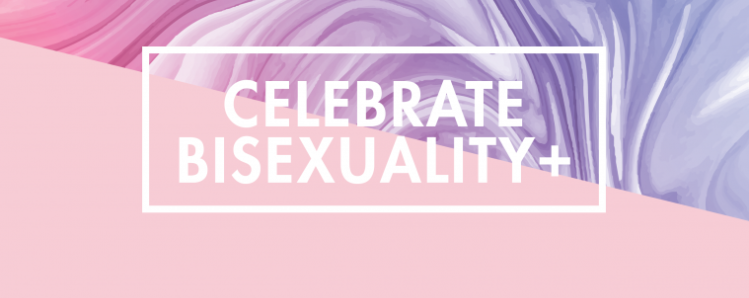Happy #BiWeek to the Bisexual+ Community. We See You.
This week, the bisexual+ community is being celebrated and recognized. #BiWeek aims to increase awareness and support for LGBTQ people who fall under the bisexual+ umbrella. LGBTQ people already have many issues of being misunderstood, mislabeled, bullied, and victimized. In addition to these issues, people who fall into the LGBTQ community are far more likely to suffer from an eating disorder.
Research shows a clearly elevated rate of eating disorders among LGBTQ people:
● Beginning at age 12, youths who identify as gay, lesbian or bisexual experience higher risk of binging and purging behaviors than the same demographic who identify as heterosexual.
● Gay and bisexual men were significantly more likely to display multiple symptoms of disordered eating than straight men.
● Lesbian and bisexual women were found to be two times as likely to engage in binge eating behaviors.
These statistics show the disproportionately high numbers of LGBTQ people with eating disorders. While eating disorders can affect anyone, the number of LGBTQ people affected is possibly higher due to factors including bullying, discrimination, body dissatisfaction, and discordance between one’s body and gender identity.
It can also be more difficult for LGBTQ individuals to seek and receive treatment, which can be a result of a lack of support from family and friends. Additionally, any treatment received may not address the complex relationship between sexual identity and the eating disorder.
If you are struggling with an eating disorder, it is most important to realize you are not alone. There is a whole community of people who want to support and help you, both in the LGBTQ community and outside of it. You should also know that recovery is possible, and is always worth it. If you haven’t yet, reach out to a loved one for support. The first step is reaching out and realizing that you do not have to continue to suffer.
It can also be helpful to find spaces, resources, and people who affirm your identity. Visit websites that are supportive of bisexual+ communities, as well as mental health issues. Some amazing communities exist on the internet, such as bisexual.org, and an extensive resource list can be found here. Following positive, inspiring bisexual+ people on social media can also be affirming and empowering. As more people talk about bisexuality, advocates are becoming more outspoken and recognized. Check out some of these advocates who are changing the world.
Bisexual+ individuals struggling with eating disorders need allies for support. As an ally, it is vital to become educated and familiar with bisexual+ identities and eating disorders. During #BiWeek, you can get involved in the conversation in many different ways.
To support a friend or a loved one, let them know you are there for them, and ready to listen. Ask them what they need, and be ready to help them. Even more ideas on how to be an ally to bisexual+ people can be found here.
As we celebrate #BiWeek, we need to remember to care for ourselves or our loved ones who may be suffering. If you are concerned that you or someone you care about might have an eating disorder, you can take a short, confidential screening, Or call ANAD’s Helpline at: (888) 375-7767 or the National Alliance of Eating Disorders Helpline at: (866) 662-1235.
If you are thinking about suicide, call or text the National Suicide Prevention Lifeline at 988. In crisis situations, text “NEDA” to 741741 to be connected with a trained volunteer from the Crisis Text Line.
Remember: your identity is valid and you are worth so much more than you know.
We see you. We hear you. And we’re here for you.
Happy #BiWeek!
Header image courtesy of GLAAD




